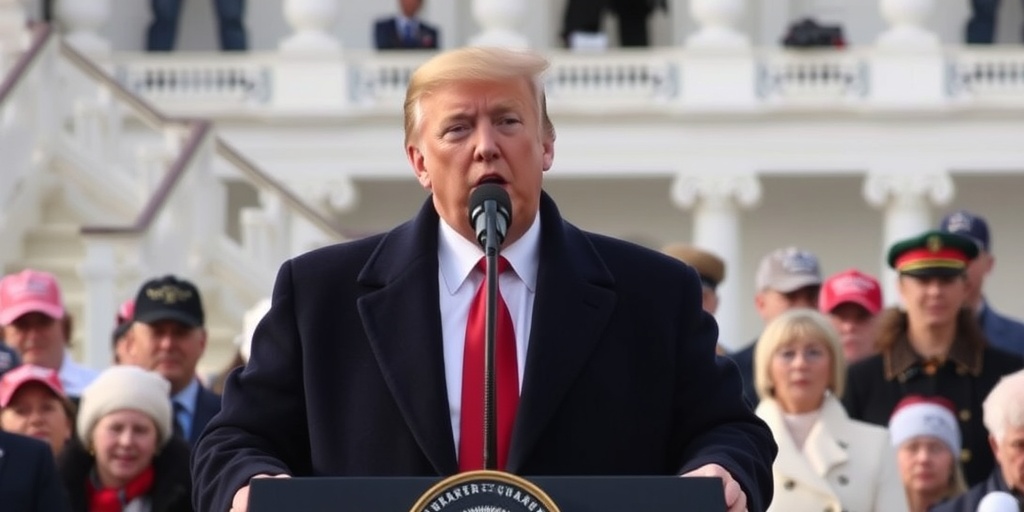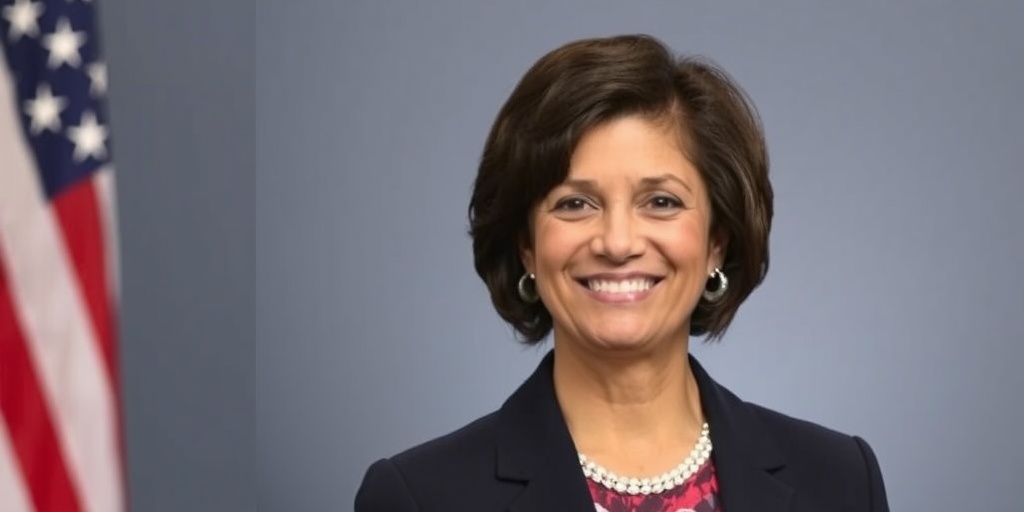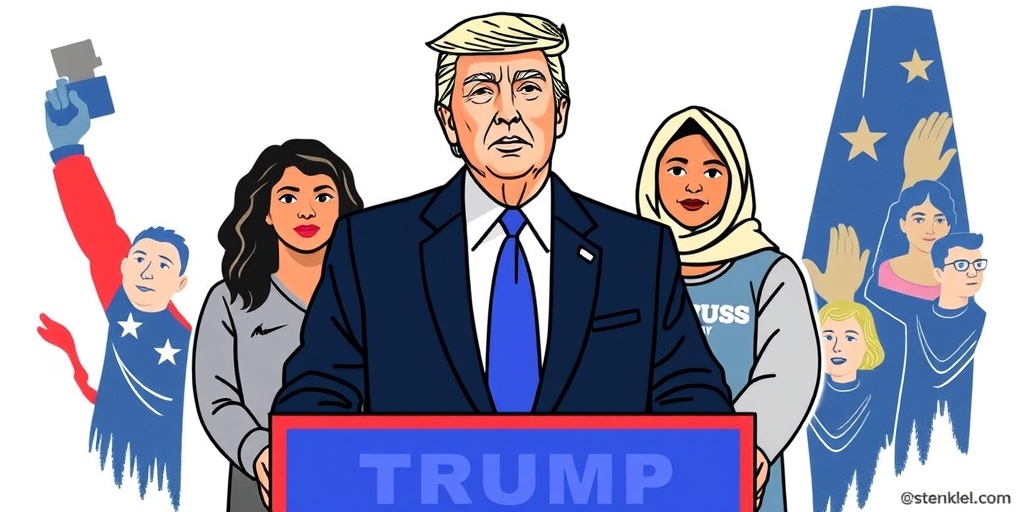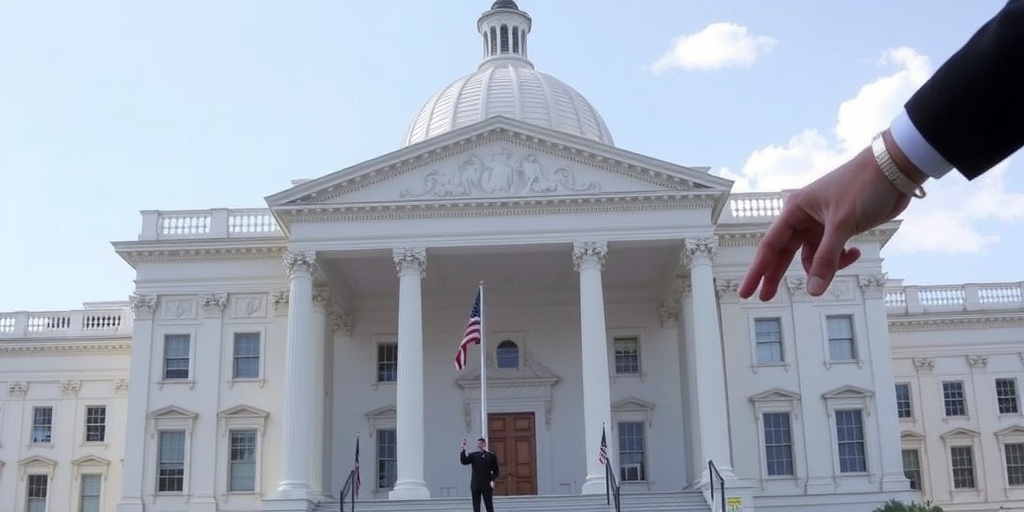Now Reading: Elon Musk’s Attire Reflects Trump’s Influence on Power Dynamics
-
01
Elon Musk’s Attire Reflects Trump’s Influence on Power Dynamics
Elon Musk’s Attire Reflects Trump’s Influence on Power Dynamics
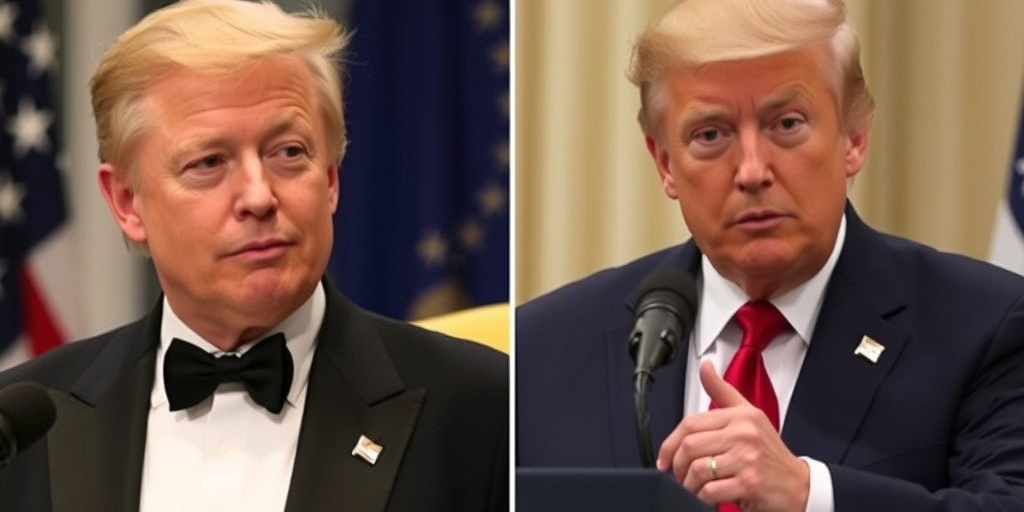
Title: The Fashion Dilemma: Musk, Trump, and the Suit Conundrum in the White House
In a surprising turn of events last week, President Trump’s press secretary, Karoline Leavitt, faced questions regarding the White House dress code that shed light on the complex dynamics of power and perception in American politics. This discourse arose when a reporter noted the apparent discontent among White House officials concerning Ukrainian President Volodymyr Zelensky’s decision to forgo a suit during his visit to the Oval Office. The inquiry pointedly juxtaposed the contrasting attire habits of visitors, highlighting that billionaire entrepreneur Elon Musk rarely dons a suit when meeting with the president. “So, what is the dress code?” the reporter asked, underscoring the hybrid nature of a casual yet high-stakes political context.
The heart of this query is rooted in the symbolic representation of attire as a power play in Washington. Musk, known for his casual ‘tech support’ T-shirt and laid-back style, represents an unorthodox approach to influence within political spheres traditionally dominated by formal attire. His choice to dress down in settings where formality is often the expectation is indicative of his status as a tech titan, asserting both comfort and dominance in spaces otherwise governed by stringent dress codes.
However, last week Musk surprised many by choosing to wear a suit and tie on two separate occasions, including during the president’s address to Congress. This unexpected decision was interpreted as an acknowledgment of the existing power structures in Washington, especially when aiming to engage with politicians and other decision-makers. The narrative shifted, suggesting that the established norms of dress and decorum were resurging, potentially redefining the relationships between figures like Musk and others entangled within the political apparatus.
Interestingly, Musk’s sartorial choices, particularly the donning of a suit, appeared more as a concession than a celebration. It was perceived by some that his formal attire represented a shift in his perceived status, perhaps suggesting a demotion from the informal power he typically exudes. Despite maintaining a partnership with Trump—evidenced by the president’s social media announcement of purchasing a Tesla—Musk seemed to experience a subtle but significant recalibration of authority within the broader context of the administration.
Leavitt noted, “I think the president liked that very much,” commenting on Musk’s formal attire for the congressional address. However, Musk’s relaxed wardrobe during his initial cabinet meeting, where he joked about his casual look, indicates that he may not fully embrace this transformation into a suit-clad participant in the political sphere.
Suits, particularly in the realm of politics, hold historical significance. Trump himself has long adhered to a strict personal dress code reminiscent of traditional corporate culture. He often emphasizes the importance of attire, citing that “the way we dress says a lot about us before we ever say a word.” This entrenched habit can be traced back to family influences, with his father often wearing a suit regardless of the circumstances. For Trump, suits convey seriousness and a particular type of authority that aligns with his persona.
In contrast, Musk represents the technological and cultural shifts brought into modern power dynamics where casual attire has become emblematic of a new elite class. Silicon Valley’s founders, like Musk, have historically favored relaxed clothing as a rejection of the conventional standards represented by the suit-and-tie brigade. This stylistic clash highlights the ongoing evolution of authority and influence in American society.
The peculiarity arises from Musk’s alignment with traditional political attire. Dressing up in a suit seemingly contradicts the very ethos he embodies as an innovator and disruptor. In Washington, where formal wear dominates, Musk’s departure from his usual style could symbolize either an acceptance of his role among bureaucratic elites or a transactional adjustment to fit in with the established norms.
Political expert Roger Stone, a longtime associate of Trump, remarked on Musk’s sartorial choices, emphasizing the importance of appearance in political and business contexts. Stone’s insights reflect the prevailing belief that dressing well can significantly influence one’s success within these realms. “I thought he looked great,” said Stone regarding Musk’s suit, though he also speculated that it was unlikely to become a common occurrence for the tech magnate.
Despite the seemingly benign nature of dress choices, they can often contain underlying tensions, as highlighted by Trump’s almost obsessive dedication to formality. Historically, Trump has shown disapproval of casual attire in his circle, particularly during his first term when he publicly criticized his original press secretary, Sean Spicer, about his choice of suit.
Ultimately, the landscape of power and style in Washington continues to evolve, and the recent sartorial choices of figures like Musk will likely spur ongoing discussions about the symbolism of dress, authority, and what it signifies about the changing tides of influence in contemporary politics. As the age-old clash between casual and formal attire persists, many are left pondering: how do we define power in a world where the lines between tradition and innovation have become increasingly blurred?
Stay Informed With the Latest & Most Important News
Previous Post
Next Post
-
 01New technology breakthrough has everyone talking right now
01New technology breakthrough has everyone talking right now -
 02Unbelievable life hack everyone needs to try today
02Unbelievable life hack everyone needs to try today -
 03Fascinating discovery found buried deep beneath the ocean
03Fascinating discovery found buried deep beneath the ocean -
 04Man invents genius device that solves everyday problems
04Man invents genius device that solves everyday problems -
 05Shocking discovery that changes what we know forever
05Shocking discovery that changes what we know forever -
 06Internet goes wild over celebrity’s unexpected fashion choice
06Internet goes wild over celebrity’s unexpected fashion choice -
 07Rare animal sighting stuns scientists and wildlife lovers
07Rare animal sighting stuns scientists and wildlife lovers













